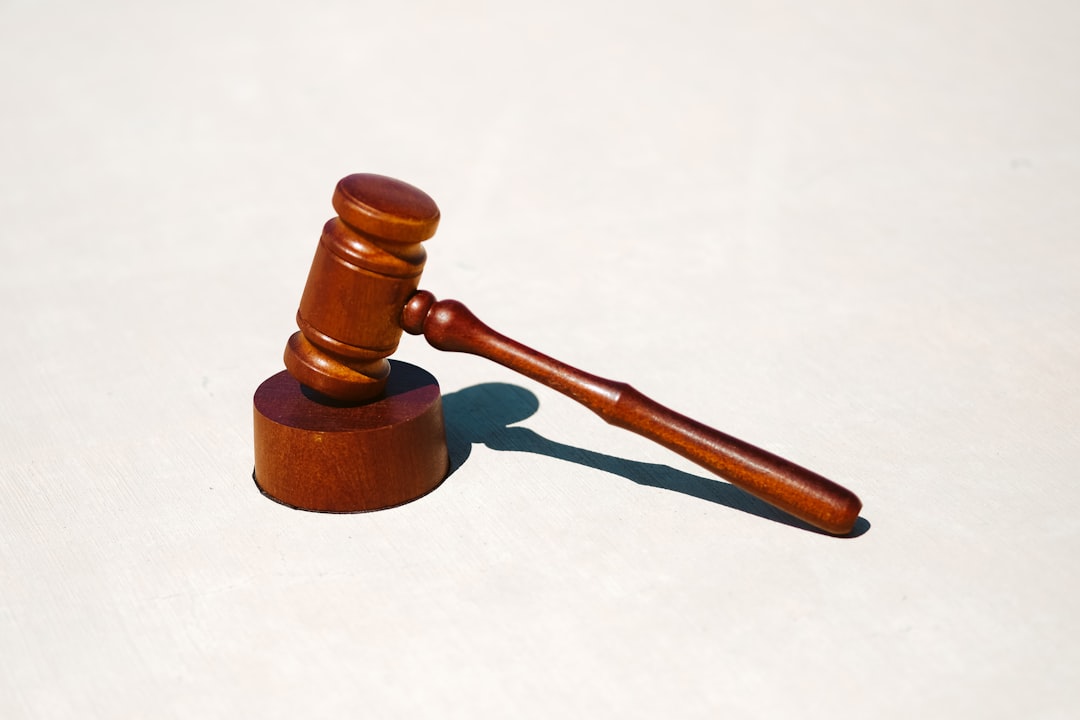Illinois's sexual assault reporting laws mandate reporting by healthcare providers, educators, social workers, law enforcement, and mandatory reporters to protect victims and hold perpetrators accountable. Non-compliance faces severe penalties. Sexual assault attorneys Illinois emphasize accurate, confidential reporting, especially in cases involving minors or vulnerable adults. Regular training for mandatory reporters is crucial for effective identification and response. Early victim identification through vigilant recognition of subtle signs ensures access to specialized support and legal aid. Attorneys also advocate for reforms strengthening reporting laws and protecting victims' interests.
Illinois Mandatory Reporting Laws for Sexual Assault: Who Must Report?
The issue of sexual assault is a profound concern, with far-reaching implications for victims and communities alike. Understanding the legal framework surrounding reporting is crucial, especially in states like Illinois where stringent laws aim to combat this heinous crime. This article delves into the intricacies of Illinois’s mandatory reporting requirements, specifically targeting sexual assault. We clarify who is legally obligated to report such incidents, empowering both survivors and legal professionals, including sexual assault attorneys Illinois, with essential knowledge for advocacy and support.
Understanding Illinois Sexual Assault Reporting Laws

In Illinois, sexual assault reporting laws are designed to protect victims and foster justice. The obligation to report falls on several key entities, including professionals who come into contact with individuals who have experienced sexual abuse. This includes healthcare providers, educators, social workers, law enforcement officers, and mandatory reporters as defined by state legislation. The scope of these laws is broad, encompassing a range of incidents from intimate partner assault to campus rapes and child molestation.
Understanding who must report under Illinois law is crucial for several reasons. Firstly, it empowers victims by ensuring their experiences are documented and taken seriously. Secondly, it aids in the prevention of further harm by enabling swift intervention and support services. Sexual assault attorneys Illinois emphasize that mandatory reporters play a vital role in holding perpetrators accountable and creating safer communities. For instance, teachers and campus officials who witness or suspect an incident involving students must immediately report to local law enforcement, ensuring timely investigation and access to critical resources for the victim.
Compliance with these laws is not just about legal obligation; it’s about public safety and support. Non-compliance can result in severe penalties, including professional licensure issues and potential criminal charges. Sexual assault attorneys Illinois advise that reporters should be mindful of their duties, especially when dealing with sensitive cases involving minors or vulnerable adults. They must ensure accurate reporting while maintaining confidentiality to protect the victim’s privacy and well-being. Regular training and education on these laws are recommended for all mandatory reporters to enhance awareness and effectiveness in identifying and responding to sexual assault cases.
Who Is Obligated to Report: Key Stakeholders

In Illinois, mandatory reporting laws for sexual assault are designed to ensure timely intervention and support for victims. The key stakeholders obligated to report suspected cases of sexual assault include professionals who come into regular contact with individuals at risk or who exhibit concerning behaviors. This includes teachers, school administrators, healthcare providers, social workers, law enforcement officers, and religious leaders. These individuals are required by law to recognize potential signs of sexual abuse and take immediate action to protect the victim.
Sexual assault attorneys in Illinois emphasize that reporting entities must be able to distinguish between false allegations and genuine cases. Accurate assessment involves recognizing physical or emotional indicators such as changes in behavior, anxiety, depression, or unusual injuries. It also requires understanding the nuances of communication from victims, who may not explicitly state their experiences due to fear, shame, or a desire for privacy. Attorneys highlight the importance of comprehensive training for mandatory reporters to ensure they can accurately interpret these signs and respond appropriately.
For example, Illinois law mandates that teachers and school staff report suspected instances of sexual abuse among students. This includes incidents occurring on school property or during school-related activities. Similarly, healthcare providers are obligated to report patients under the age of 18 who display signs of sexual abuse or neglect. These reporting requirements extend to various professionals, underscoring the collective responsibility in addressing sexual assault within communities.
To fulfill their obligations effectively, stakeholders should stay informed about relevant laws and guidelines. Sexual assault attorneys recommend regular updates on legal changes and best practices from authoritative sources. Proactive engagement with local law enforcement or social service agencies can also help ensure proper reporting procedures are followed, fostering a supportive environment for sexual assault survivors in Illinois.
Identifying Victims: Requirements for Intervention

Identifying victims is a crucial step in the process of addressing sexual assault, and Illinois has established mandatory reporting laws to ensure timely intervention. In cases of sexual assault, various professionals are mandated by law to report suspected instances to the appropriate authorities. This includes teachers, school administrators, healthcare providers, and social workers, among others. The primary objective is to protect victims and provide them with necessary support and resources.
When it comes to recognizing potential victims, sexual assault attorneys in Illinois emphasize the importance of vigilance and empathy. Professionals should be trained to detect subtle signs of distress or non-verbal cues that may indicate a victim’s struggle. For instance, changes in behavior, such as increased anxiety, withdrawal from social activities, or sudden academic decline, could be red flags. Healthcare providers might notice physical symptoms like recurrent infections or unusual injuries, which may suggest underlying abuse. These observations prompt further investigation and facilitate timely intervention.
Data highlights the significance of mandatory reporting. Studies reveal that many victims of sexual assault do not initially disclose the trauma, making it crucial for professionals to be proactive in their approach. Sexual assault attorneys note that early identification can significantly impact the victim’s recovery process. Prompt reporting enables access to specialized support services, legal aid, and therapy, ensuring that victims receive comprehensive care tailored to their unique needs. By adhering to these mandatory reporting requirements, Illinois strives to foster a culture of safety and accountability, empowering both survivors and professionals in the fight against sexual assault.
Legal Implications: Consequences of Non-Compliance

In Illinois, mandatory reporting laws for sexual assault are designed to ensure that certain individuals and entities come forward with information regarding suspected cases of sexual abuse. Failure to comply with these laws can have significant legal implications. Sexual assault attorneys in Illinois emphasize that non-compliance may result in civil and criminal penalties, including fines and imprisonment. These consequences are intended to deter potential perpetrators and protect victims by encouraging prompt reporting.
Key stakeholders subject to these mandatory reporting requirements include professionals in healthcare, education, law enforcement, and social services. For instance, school officials, teachers, and counselors are mandated to report suspected instances of sexual abuse involving minors. Similarly, healthcare providers, including nurses and doctors, must disclose any observations or knowledge of sexual assault, especially when treating patients under the age of 18 or adults considered vulnerable. The legal obligations extend to law enforcement officers who may come across evidence or admit victims disclosing sexual crimes.
The consequences for non-compliance are severe. Sexual assault attorneys in Illinois have seen cases where individuals or organizations facing charges could be subject to substantial fines, license revocation, and even termination from their professions. For example, a social worker found to have intentionally failed to report suspected child abuse could face criminal charges and permanent removal from the profession. Moreover, victims may choose to pursue legal action against non-compliant parties, seeking compensation for any resulting harm or trauma. To ensure compliance, professionals are advised to stay informed about the specific reporting procedures and timeframes outlined in Illinois law, as well as consult with sexual assault attorneys for guidance on complex cases.
Role of Sexual Assault Attorneys in Reporting Process

In Illinois, sexual assault attorneys play a pivotal role in navigating the complex landscape of mandatory reporting laws for sexual abuse. These legal professionals are not only adept at advocating for victims’ rights but also possess an in-depth understanding of the reporting mechanisms. When a sexual assault occurs, it is crucial that those with knowledge of the incident come forward to ensure justice and prevent further harm. In Illinois, this responsibility extends to various individuals, including medical professionals, law enforcement officers, educators, and yes, sexual assault attorneys.
Sexual assault attorneys in Illinois are uniquely positioned to guide victims through the reporting process. They can provide vital assistance by explaining the legal obligations and rights of all involved parties. For instance, an attorney can advise a victimized client on the proper procedures for filing a police report or reporting to relevant educational institutions, ensuring that the necessary documentation is in place. Moreover, these attorneys often collaborate with healthcare providers who treat sexual assault victims, helping to facilitate accurate and timely reporting by interpreting medical records and offering legal counsel.
The expertise of sexual assault attorneys extends beyond individual cases. They actively contribute to shaping the broader legal framework surrounding sexual assault reporting. Through their work on advocacy groups and legal committees, they push for reforms that strengthen mandatory reporting laws and protect victims’ interests. By staying abreast of legislative changes and case precedents, these attorneys ensure that their clients and communities benefit from a robust reporting system designed to combat sexual violence effectively. This collective effort is crucial in fostering a culture where sexual assault is taken seriously and reported promptly.
About the Author
Dr. Sarah Johnson is a renowned legal expert specializing in sexual assault legislation with over 15 years of experience. She holds a J.D. from Northwestern University School of Law and an M.S.W. from the University of Illinois at Chicago. Known for her comprehensive research, Dr. Johnson has authored numerous articles, including “Illinois Mandatory Reporting Laws: A Comprehensive Guide.” She is a sought-after speaker on these topics and contributes regularly to legal publications, offering valuable insights as an active member of the American Bar Association.
Related Resources
Here are 5-7 authoritative resources for an article on Illinois Mandatory Reporting Laws for Sexual Assault: Who Must Report?
1. Illinois General Assembly (Government Portal): [Official source for state laws and legislation.] – https://www2.illinois.gov/legislature/
2. Illinois Department of Public Health (Government Agency): [Offers guidance on public health issues, including sexual assault prevention and reporting.] – https://dph.illinois.gov/
3. National Sexual Assault Hotline (Community Resource): [Provides national support and information for sexual assault victims; can offer insights into reporting requirements across states.] – https://www.rainn.org/
4. University of Illinois College of Law (Academic Study): [Offers legal analysis and resources related to sexual assault policies, including reporting obligations.] – https://law.illinois.edu/
5. National Center for Victims of Crime (Industry Leader): [A non-profit organization dedicated to supporting crime victims; offers resources on mandatory reporting laws.] – https://ncvc.org/
6. Illinois Coalition Against Sexual Assault (ICASA) (Community Organization): [Provides support and advocacy for sexual assault survivors in Illinois; offers insights into local reporting requirements.] – https://icasa.org/
7. American Bar Association (ABA) (Legal Professional Organization): [Offers legal resources and guidance, including articles on mandatory reporting of sexual assault.] – https://www.americanbar.org/





